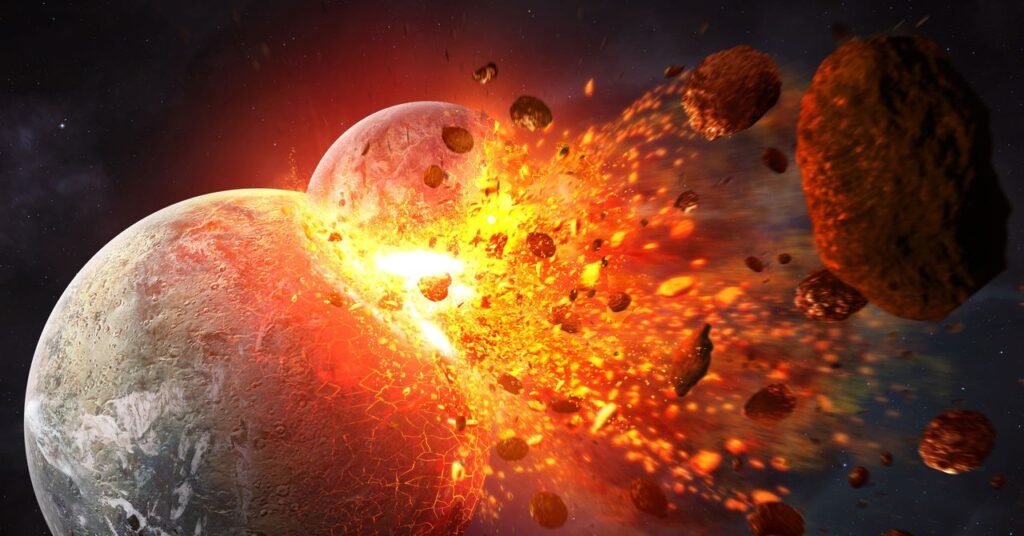the Earth you walk on today might not be the same planet that was born 4.5 billion years ago. Many scientists believe that in its infancy, Earth collided with another world the size of Mars, and that instead of being destroyed, it was transformed, incorporating the mass of that foreign body to become the planet we know. Recent research adds another layer of relevance to that hypothesized cosmic event: Scientists believe that without that other body, the basic conditions for life to emerge on Earth might never have appeared.
A team from the University of Bern in Switzerland argues that, due to its proximity to the sun, the proto-Earth that existed before this potential collision lost the volatile elements essential to form complex molecules. Any hydrogen, carbon, or sulfur, their analysis suggests, evaporated in just the first 3 million years after proto-Earth’s formation. And so if Earth had evolved without external inputs, they say, it would probably be a drier world, more hostile to the development of complex life.
On the other hand, if a body formed in the outskirts of the solar system—a region that produces rocks with abundant water and other volatile elements—and this then hit a rocky planet like proto-Earth, then this could have provided the strange chemical richness that characterizes our planet today, even after Earth’s initial aggressive evaporation process. This hypothesis coincides with other proposals that point to an extraterrestrial origin of water, according to which icy meteorites bombarded the primitive Earth and deposited their molecules.
In a study published in Science Advances, researchers precisely measured the radioactive decay of two isotopes, manganese-53 to chromium-53, in both terrestrial samples and meteorite fragments found on Earth. Since these space rocks formed at the same time as the sun and the solar system’s planets, analyzing traces of them and their composition is equivalent to opening a time capsule from the past. By calculating the radioactive decay of manganese-53, the researchers revealed the point in time when the planets stopped exchanging material with their environment and fixed the chemical elements they would keep forever.
Their results show that proto-Earth sealed its elements just 3 million years after the birth of the solar system. Moreover, they found that the early planet’s ratio of manganese to chromium was very low, suggesting that proto-Earth was an extremely hot world, capable of expelling manganese. Since this element is less volatile than other more important elements, such as hydrogen, carbon, or sulfur, these too must have escaped.
“Thanks to our results, we know that the proto-Earth was initially a dry rocky planet. It can therefore be assumed that it was only the collision with Theia that brought volatile elements to Earth and ultimately made life possible there,” Pascal Kruttasch, first author of the report, said in a University of Bern press release.
Theia is the name of the hypothetical body thought to have hit proto-Earth about 4.5 billion years ago. The researchers believe the impact would have occurred between 30 and 100 million years after the beginning of the solar system—that is, several tens of millions of years after the ancestor of our planet was known to be a very dry world.
However, the arrival of water and other volatile elements does not equate to the immediate emergence of life. Water alone does not produce life, but it does create a much more favorable chemical and physical environment for other molecules to appear and, with them, the biological processes that underlie cells. In this sense, Theia set the stage but did not ignite the spark.
This story originally appeared on WIRED en Español and has been translated from Spanish.


